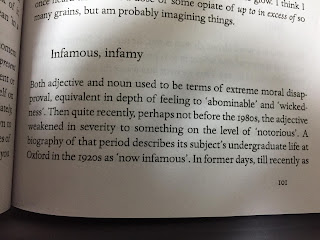In Passing
Some sentences tell us a great deal, not because of their essential information, but because of the way they are phrased, or their context. It is possible to learn something new from a book even if it does not present you with any new facts, because of the way the facts are assembled and because of the phrasing used in presenting the facts. I found the following sentences, from Samuel P. Huntington's The Clash of Civilizations , quite piquant: In the nineteenth century successful industrialization and emigration reduced the political impact of young populations in European societies. The proportions of youth rose again in the 1920s, however, providing recruits to fascist and other extremist movements.
.png)
